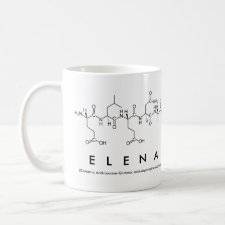
Authors: Muhammad T, Liu C, Wang JD, Piletska EV, Guerreiro AR, Piletsky SA
Article Title: Rational design and synthesis of water-compatible molecularly imprinted polymers for selective solid phase extraction of amiodarone.
Publication date: 2012
Journal: Analytica Chimica Acta
Volume: 709
Issue: (1)
Page numbers: 98-104.
DOI: 10.1016/j.aca.2011.10.009
Alternative URL: https://www.researchgate.net/publication/51832217_Rational_design_and_synthesis_of_water-compatible_molecularly_imprinted_polymers_for_selective_solid_phase_extraction_of_amiodarone
Abstract: Novel water-compatible molecularly imprinted polymers (MIPs) selective for amiodarone (AD) were designed via a new methodology which relies on screening library of non-imprinted polymers (NIPs). The NIP library consisted of eighteen cross-linked co-polymers synthesized from monomers commonly used in molecular imprinting. The binding capacity of each polymer in the library was analyzed in two different solvents. Binding in water was used to assess non-specific (hydrophobic) interactions and binding in an appropriate organic solvent was used to assess specific interactions. A good correlation was found between the screening tests and modeling of monomer-template interactions performed using computational approach. Additionally, analysis of template-monomer interactions was performed using UV-vis spectroscopy. As the result, 4-vinylpyridine (4-VP) was selected as the best monomer for developing MIP for AD. The 4-VP-based polymers demonstrated imprinting factor equal 3.9. The polymers performance in SPE was evaluated using AD and its structural analogues. The recovery of AD was as high as 96% when extracted from spiked phosphate buffer (pH 4.5) solution and 82.1% from spiked serum samples. The developed MIP shown as a material with specific binding to AD, comparing to its structural analogues, 1-(2-diethylaminoethoxy)-2,6-diiodo-4-nitrobenzene and lidocaine, which shown 9.9% and 25.4% of recovery from the buffer solution, correspondingly. We believe that the screening of NIP library could be proposed as an alternative to commonly used computational and combinatorial approaches
Template and target information: amiodarone, AD
Author keywords: molecularly imprinted polymer, Solid-phase extraction, Amiodarone, Bovine serum, Monomer screening, rational design



Join the Society for Molecular Imprinting

New items RSS feed
Sign-up for e-mail updates:
Choose between receiving an occasional newsletter or more frequent e-mail alerts.
Click here to go to the sign-up page.
Is your name elemental or peptidic? Enter your name and find out by clicking either of the buttons below!
Other products you may like:
 MIPdatabase
MIPdatabase









